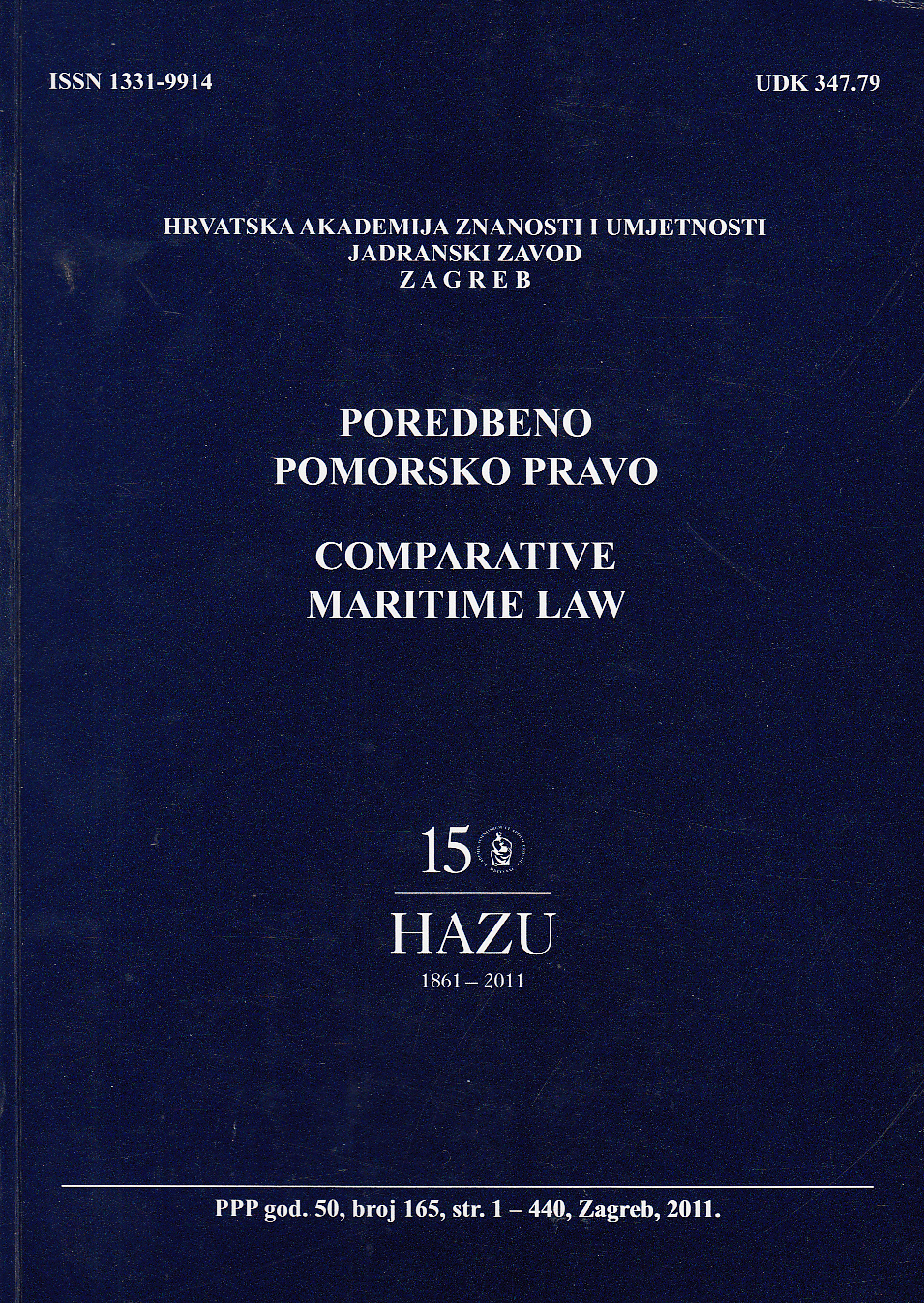Uvođenje poreza po tonaži broda u pomorsko zakonodavstvo Republike Hrvatske
The introduction of a tonnage tax regime into the Croatian maritime legislation
Author(s): Dorotea ĆorićSubject(s): Fiscal Politics / Budgeting, Maritime Law, Commercial Law
Published by: Hrvatska akademija znanosti i umjetnosti
Keywords: state aid;tonnage tax;tonnage tax profit;maritime transport;
Summary/Abstract: The tonnage tax regime is introduced into the Croatian maritime legislation by new amendments to the Maritime Act. The regime is a tax measure in favour of the shipping industry. It is designed to maintain in existence a Croatian registered merchant fleet, to retain employment for Croatian seafarers and to maintain the competitiveness of Croatian ship operators. This paper analyses the main features of the Croatian tonnage tax regime – qualifying company, qualifying vessels and activities, flag link, ring–fencing, lock up period of tonnage tax period. Furthermore the regime is examined in the light of the 2004 Community guidelines on State aid to maritime transport. According to the relevant provisions of the Maritime Act, qualifying companies may choose to have their shipping activities taxed on the basis of the net tonnage of their fleet instead of on the basis of their actual profits. Companies, having opted for the tonnage tax, must remain subject to this regime for a period of 10 years. The qualifying company has to be a shipping company liable to the Croatian corporation tax on any profits that accrue to it. It must also operate qualifying ships, and most importantly, the company must carry out the strategic and commercial management of the qualifying ships in Croatia. The author concludes that any shipping company, before opting for the tonnage tax system, must judiciously assess its complete financial position.
Journal: Poredbeno pomorsko pravo
- Issue Year: 50/2011
- Issue No: 165
- Page Range: 75-89
- Page Count: 15
- Language: Croatian

